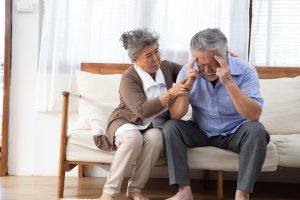 It can be easy to use the cold winter weather as an excuse to stay inside and avoid outdoor physical activities. However, many forms of outdoor exercise are actually well-suited to lower temperatures and can even offer some added benefits, assuming that you take the appropriate precautions to protect your health. A few of these recommended outdoor exercises include:
It can be easy to use the cold winter weather as an excuse to stay inside and avoid outdoor physical activities. However, many forms of outdoor exercise are actually well-suited to lower temperatures and can even offer some added benefits, assuming that you take the appropriate precautions to protect your health. A few of these recommended outdoor exercises include:
Running: Winter is a great time to go out for a run. Running is a simple way to incorporate moderately intense aerobic exercise into each week; the Centers for Disease Control and Prevention (CDC) recommends an average of 150 minutes of this type of exercise each week. Running in cold temperatures may also increase your metabolism, making it easier to burn excess calories. Make sure to wear two layers (including a jacket) and appropriately-fitting running shoes.
Ice Skating: Another popular outdoor winter activity that can double as a great form of exercise is ice skating. It’s a low-impact type of aerobic exercise, meaning that it puts minimal stress on your joints. It can also be helpful for improving your balance and strengthening your leg muscles. In order to avoid injury or medical problems due to the cold weather, make sure to wear appropriately-fitting skates and additional layers of clothing.
Snow Shoveling: While shoveling snow is typically more of a chore than a popular exercise choice, it does offer a few benefits for your physical health. Snow shoveling requires effort from your legs and arms to lift and move snow, strengthening muscles in these parts of your body. As with other outdoor exercises, make sure to wear an appropriate number of layers of clothing. Additionally, make sure to lift from your legs to avoid injuries to your back, and take frequent rests as needed to avoid over-stressing your heart.
If you experience medical problems while exercising, you can schedule an appointment with a doctor at Flushing Hospital Medical Center’s Ambulatory Care Center. To schedule an appointment, please call (718) 670-5486.
All content of this newsletter is intended for general information purposes only and is not intended or implied to be a substitute for professional medical advice, diagnosis or treatment. Please consult a medical professional before adopting any of the suggestions on this page. You must never disregard professional medical advice or delay seeking medical treatment based upon any content of this newsletter. PROMPTLY CONSULT YOUR PHYSICIAN OR CALL 911 IF YOU BELIEVE YOU HAVE A MEDICAL EMERGENCY.





